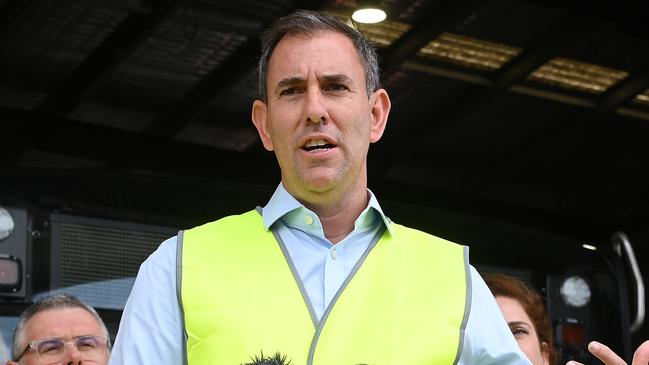ALP’s new tax policy will become election issue as unfair system hits family businesses


In 2025, my candidate for the surprise issue will be taxation, covering both the system itself and the ALP’s new signature policy of taxing unrealised gains.
The unrealised gains tax net may be widened by the government as an alternative to cuts in the bureaucracy.
Last year, JWS Research asked Australians to respond to this statement: “The tax system in Australia is working well and not in need of significant reform”.
Only 24 per cent of people agreed, with 41 per cent disagreeing with that statement. JWS added that notably, women were even more dissatisfied with the tax system than men.
To add validity to the unhappiness revealed by the survey, JWS framed the statement in the positive, so reducing the likelihood that people would be instinctively led to a negative response.
In the last 12 months, many tax collectors in the Australian Taxation Office have become far more brutal and unreasonable in negotiating settlement packages with smaller enterprises.
Most of the entrepreneurs and their spouses have their houses on the line, so it is not surprising that ATO brutality is creating angst among females.
The families behind these businesses see clearly how unfair the system has become. Tax liabilities have been created on the basis of extremely dubious assessments.
The families are then outrageously told they must prove the ATO wrong. Apart from the cost nightmare in the courts, there are limited avenues for appeal except to the Inspector-General of Taxation and Ombudsman Ruth Owen. Incredibly, until recently, the Ombudsman had no powers to even obtain documents from the ATO.
But the legislation that followed the Robodebt/ATO systems scandal gave her the power to demand documents, although the ATO inserted a “let out” clause to enable the ATO to withhold vital information.
Sadly, over the years, both Coalition and ALP treasurers and assistant treasurers have been snowed by the Treasury and the ATO on the basis that revenue is more important than proper processes and systems.
The only hope the nation has to gain proper taxation systems is for an opposition party to have a clear policy in advance of an election. To date, neither the Liberals nor the Nationals have had the courage.
Taxing unrealised gains came out of superannuation reforms.
I emphasise, there is no great controversy with a 30 per cent tax on income generated by assets of more than $3m in superannuation.
The treasurer touts the benefits to the community from that extra revenue. The nation does not need an unrealised gains tax to raise that money. That’s why we know there is a much wider agenda.
It would have been very easy to calculate that taxable income using the same methods used to calculate income on assets below $3m. And that would be fair.
But the ALP answer was “NO!, NO!”. Instead of fairness, the government would launch an unrealised capital gains tax so that the calculation of income earned on assets above $3m would not only be totally different to normal calculations but would be totally unfair.
The “income” would be determined by taking unsold, long-term portfolio investments in property shares and similar assets and getting them valued by the ATO.
The increase in the value of these unsold assets would then be included in “income” and be taxed at 30 per cent.
At first, we thought this tax had been imposed because industry and retail superannuation funds had difficulty gaining information to tax at 30 per cent using conventionally calculated income on more than one fund.
This turned out to be a deliberate untruth because gaining the information to calculate conventional income to be taxed at 30 per cent on multiple funds turned out to be easy.
On the surface, the untruth looks to be a deliberate concealment of the real intentions of Treasury and the ALP government to substantially widen the tax base.
Lack of indexation on the $3m trigger will help widen the net, but a joint ALP-Greens government would almost certainly lower the trigger to $2m.
Once the benchmark is lowered, the next step is to take it out of superannuation and apply it to non-superannuation assets.
Once unrealised gains are being taxed, it would force savers to sell part of the asset to pay the tax or sell other assets.
It’s an incredible disincentive to invest in new enterprises and expand existing ones. Australia becomes a very different society dominated be very large enterprises, large unions, and large government.
It is a very destructive way to raise money and the sufferers will be the younger generations who may need to go abroad to fulfil their aspirations.




In every election, there are always issues the parties did not predict to be game changers. In 2019, it was franking credits. In 2022, it was voter unhappiness with then Prime Minister Scott Morrison.